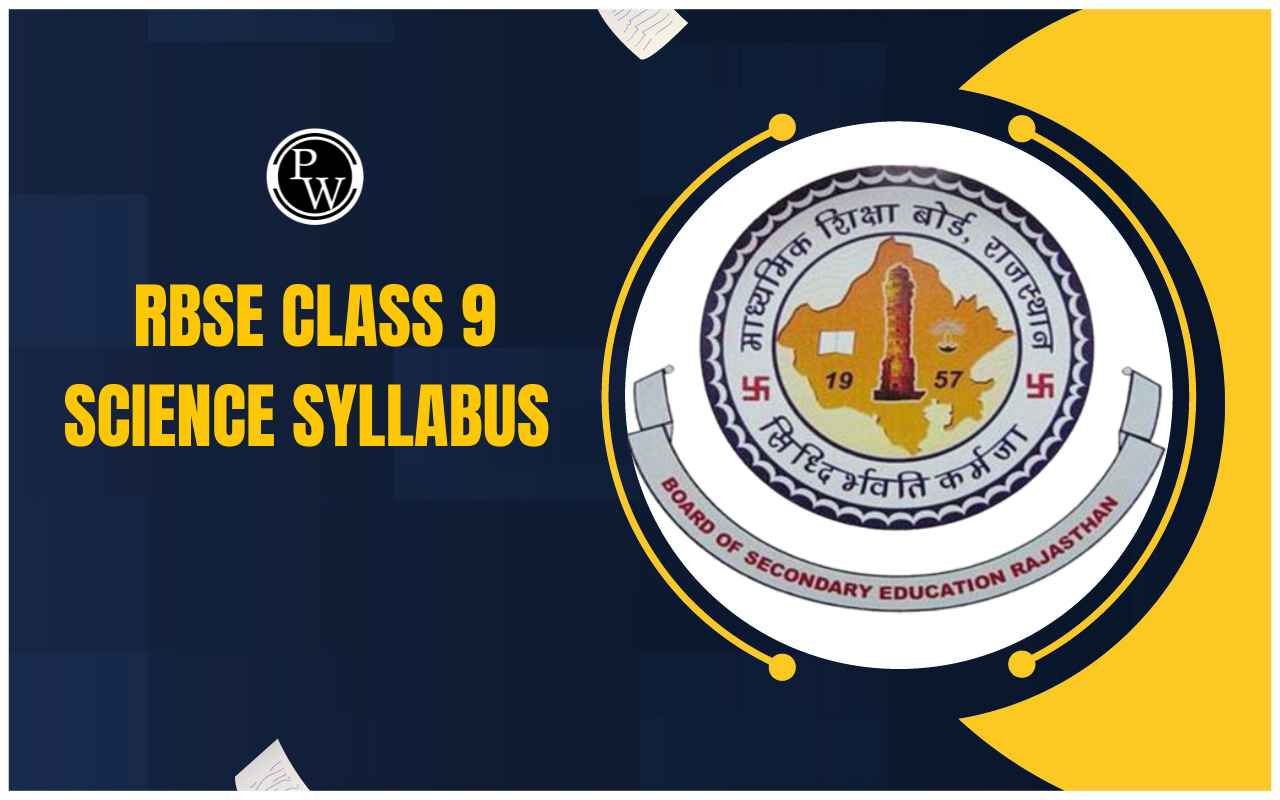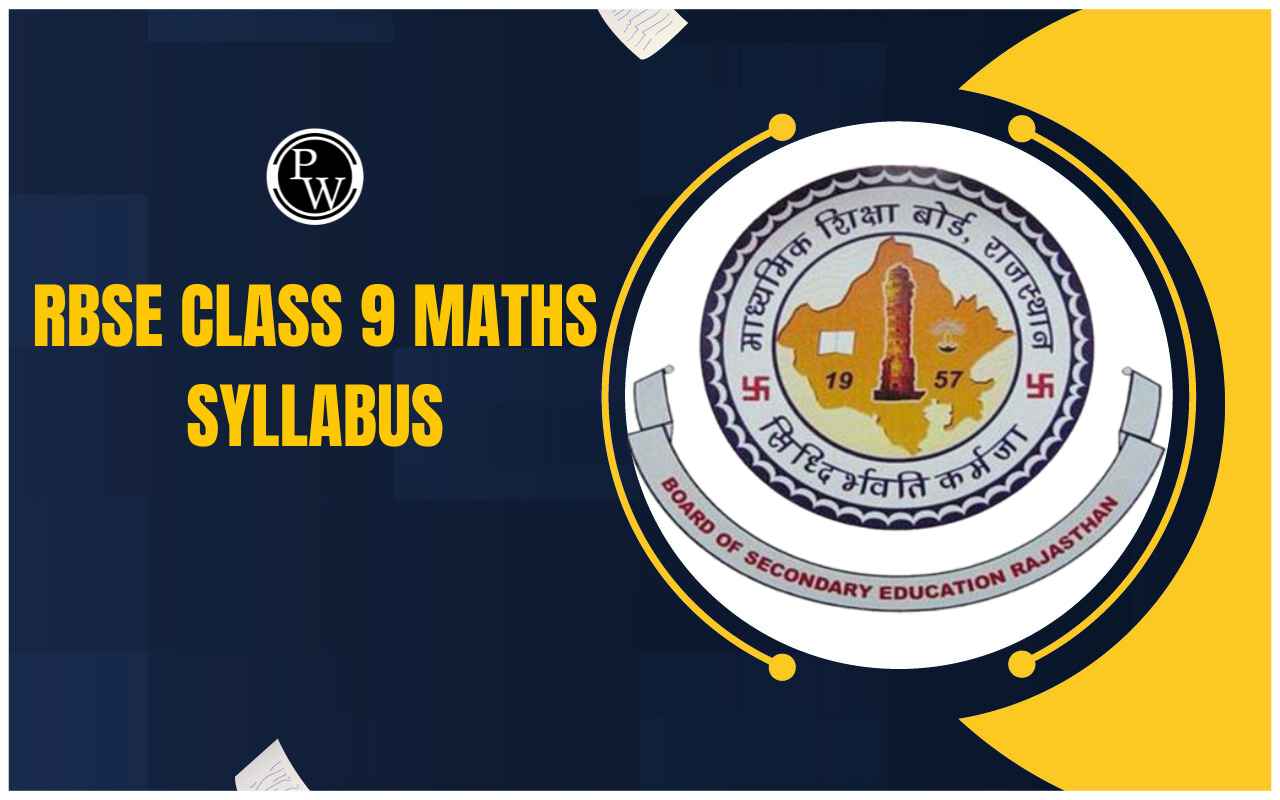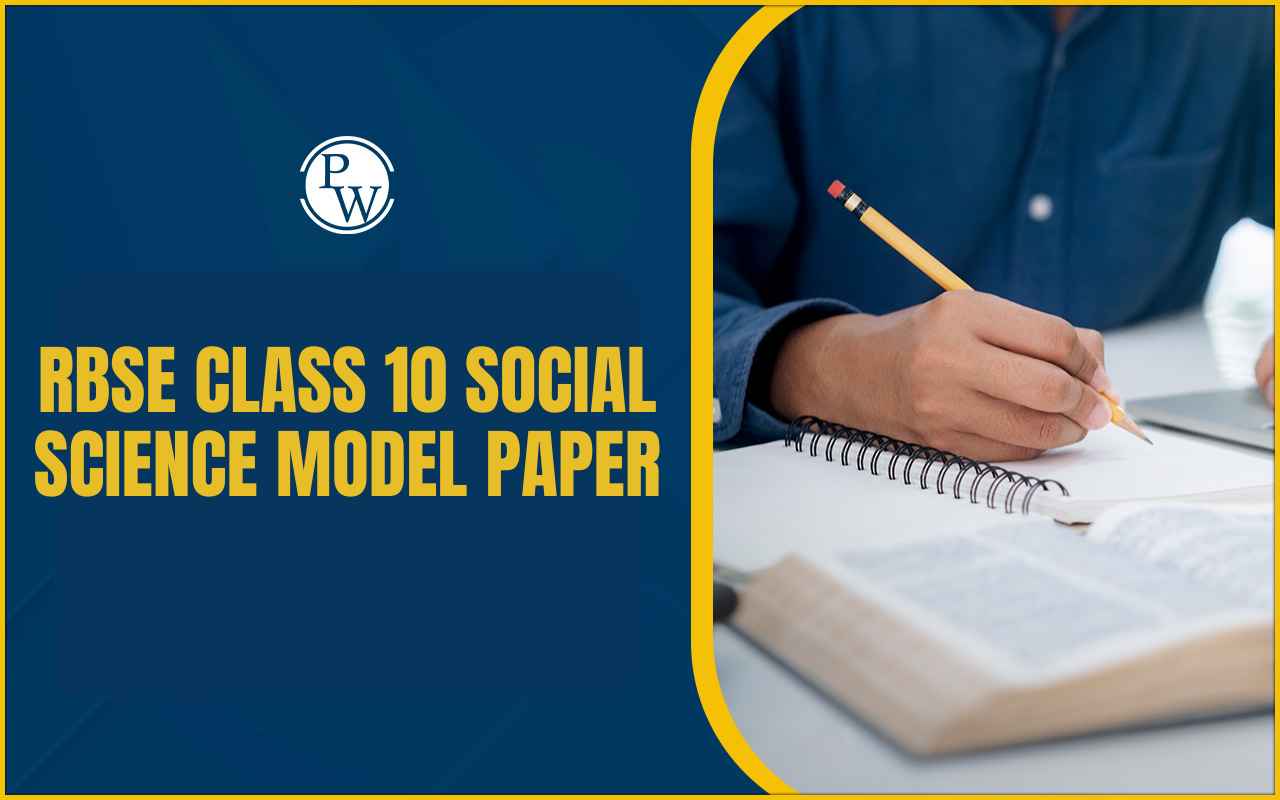
RBSE Class 12th Biology Syllabus: The RBSE Class 12th Biology syllabus focuses on key topics like Genetics, Ecology, Human Physiology, and Biotechnology. It is divided into two main sections: Theory and Practical. The theory portion covers subjects such as Reproduction, Evolution, and Ecology, while the practical section includes experiments on various biological processes.
The RBSE exam pattern consists of 70 marks for theory and 30 marks for practicals. The exam features multiple-choice, short-answer, and long-answer questions. Studying previous year papers helps students understand the exam format and frequently asked questions, aiding in better preparation and time management.
RBSE Class 12th Biology Syllabus
Check below for the detailed RBSE 12th Syllabus for Biology , which covers a wide range of topics including sexual reproduction in plants and humans, principles of inheritance, molecular genetics, evolution, human health, biotechnology, and ecosystem dynamics. Each chapter offers insights into biological processes and their practical applications, preparing students for both theoretical understanding and real-world scenarios.
|
RBSE Class 12th Biology Syllabus |
|
|
Chapter Number |
Chapter Name |
|
1 |
Sexual Reproduction in Flowering Plants |
|
2 |
Human Reproduction |
|
3 |
Reproductive Health |
|
4 |
Principles of Inheritance and Variation |
|
5 |
Molecular Basis of Inheritance |
|
6 |
Evolution |
|
7 |
Human Health and Disease |
|
8 |
Microbes in Human Welfare |
|
9 |
Biotechnology: Principles and Processes |
|
10 |
Biotechnology and its Applications |
|
11 |
Organisms and Population |
|
12 |
Ecosystem |
|
13 |
Biodiversity and Conservation |
RBSE Class 12th English Syllabus
Detailed Overview of RBSE Class 12th Biology Syllabus
Here’s an overview of each chapter from the RBSE Class 12th Biology syllabus:
-
Sexual Reproduction in Flowering Plants
This chapter explores the intricate processes involved in the sexual reproduction of plants, including structures like stamens, pistils, pollination, fertilization, and seed formation. It also covers advanced concepts like apomixis and polyembryony. -
Human Reproduction
Focuses on the human reproductive system, gametogenesis, and the menstrual cycle. It delves into pregnancy, embryonic development, parturition, and lactation, highlighting the stages from fertilization to birth. -
Reproductive Health
This chapter addresses reproductive health issues, strategies for population stabilization, birth control methods, and sexually transmitted diseases. It also discusses infertility, medical termination of pregnancy, and health education. -
Principles of Inheritance and Variation
Covers Mendel’s laws of inheritance, including dominance, segregation, and independent assortment. It also explores genetic variations, polygenic inheritance, pleiotropy, mutations, genetic disorders, and chromosomal abnormalities. -
Molecular Basis of Inheritance
Focuses on DNA as the genetic material, covering replication, transcription, translation, and gene expression regulation. Topics like the Human Genome Project and DNA fingerprinting are also discussed. -
Evolution
This chapter examines the origin of life, the theory of evolution, and mechanisms driving evolutionary processes. It also covers evidence for evolution, adaptive radiation, and the evolution of humans. -
Human Health and Disease
Explores various human diseases caused by bacteria, viruses, fungi, protozoa, and worms. It also covers immunity, vaccination, AIDS, cancer, and the effects of drugs and alcohol on health. -
Microbes in Human Welfare
This chapter discusses the positive roles of microbes in human welfare, such as in sewage treatment, biogas production, as biofertilizers, and biocontrol agents. It also highlights their use in industrial and household products. -
Biotechnology: Principles and Processes
Introduces biotechnology, genetic engineering, and recombinant DNA technology. It discusses tools like restriction enzymes, cloning vectors, PCR, and gene transformation processes used to create genetically modified organisms. -
Biotechnology and its Applications
Focuses on the application of biotechnology in agriculture and medicine, including genetically engineered insulin, gene therapy, and molecular diagnostics. Ethical issues related to biotechnology are also explored. -
Organisms and Population
This chapter examines the structure and functioning of populations, including population growth, life history variations, and interactions among species within an ecosystem. -
Ecosystem
Discusses the structure and functions of ecosystems, including energy flow, productivity, decomposition, and ecological pyramids. It emphasizes the interdependence of organisms within ecosystems. -
Biodiversity and Conservation
Explores patterns of biodiversity, the loss of biodiversity, and strategies for conservation. This chapter emphasizes the importance of maintaining biodiversity for ecological balance and human welfare.
RBSE 12th Class Maths Syllabus
Steps to download RBSE Class 12th Biology Syllabus
To download the RBSE Class 12th Biology syllabus, follow these steps:
-
Visit the Official RBSE Website: Go to the official RBSE website rajeduboard.rajasthan.gov.in .
-
Navigate to the Syllabus Section: Look for the link labeled "Syllabus" or "पाठ्यक्रम" (Syllabus) on the homepage.
-
Select Class 12 Syllabus: Choose the option for Class 12 syllabus.
-
Download the Syllabus: Find the Biology syllabus from the list of subjects and click on it to open the PDF document.
-
Save the PDF: Once the syllabus is open, you can download it by clicking the download button or pressing
RBSE Class 12th Biology Syllabus PDF Download
We have provided the RBSE Class 12th Biology Syllabus PDF below for your convenience. This syllabus includes detailed information about the topics and practical examination guidelines.
It covers both theoretical and practical aspects of the subject, ensuring a comprehensive understanding of the key concepts in Botany, Zoology, and other related fields. Download the PDF to access all the essential details and prepare effectively for the upcoming exams.
RBSE Class 12th Biology Syllabus
Study without using the internet
RBSE Class 12th Biology Exam Pattern and Marking Scheme
The RBSE Class 12th Biology exam follows a structured RBSE 12th Exam Pattern , with both theory and practical components. The theory exam includes objective, short answer, and long answer questions, totaling 70 marks. The practical exam is worth 30 marks. For a detailed breakdown of the exam pattern and marking scheme, check the table below.
Note: Below we have provided a basic structure, it is always advised to check the official website.
|
RBSE Class 12th Biology Exam Pattern and Marking Scheme |
|||
|
Section |
Type of Questions |
Marks |
Duration |
|
Theory Exam |
|||
|
Part A: Objective Type Questions |
Multiple Choice Questions |
20 marks |
3 hours |
|
Part B: Short Answer Type |
2-3 marks each (5-6 Questions) |
20 marks |
|
|
Part C: Long Answer Type |
5-6 marks each (3-4 Questions) |
20 marks |
|
|
Practical Exam |
30 marks |
3 hours |
|
|
Total Marks |
70 Marks |
||
RBSE Class 12th Biology Syllabus for Practical Examination
The RBSE Class 12th Biology Practical Examination syllabus includes various exercises such as major and minor experiments in both Botany and Zoology, investigation projects, and spot identification (Botany and Zoology).
Students are assessed on their practical skills, practical records, and viva-voce based on the experiments conducted, emphasizing the application of theoretical knowledge in practical scenarios.
|
RBSE Class 12th Biology Syllabus for Practical Examination |
||
|
Component |
Evaluation |
Marks |
|
Botany Major Exercise |
Botany Major Exercise |
04 |
|
Zoology Major Exercise |
Zoology Major Exercise |
04 |
|
Botany Minor Exercise |
Botany Minor Exercise |
03 |
|
Zoology Minor Exercise |
Zoology Minor Exercise |
03 |
|
Spots (3 Botany + 3 Zoology) |
Spots (3 Botany + 3 Zoology) |
06 |
|
Investigatory Project |
Investigatory Project |
04 |
|
Practical Record |
Practical Record |
04 |
|
Viva-Voce (Based on Practical Work) |
Viva-Voce (Based on Practical Work) |
02 |
|
Total |
30 |
|
Preparation Tips for RBSE Class 12th Biology Exam
Here are some RBSE Class 12th Preparation Tips for Biology Exam:
-
Understand the Syllabus: Familiarize yourself with the RBSE Class 12th Biology syllabus to know the topics and important chapters.
-
Concept Clarity: Focus on understanding the core concepts rather than rote memorization. Clear concepts will help in answering application-based questions.
-
Study NCERT Textbooks: Follow the NCERT Biology textbook as it is the primary resource for the exam.
-
Make Notes: Prepare concise notes for each chapter for quick revision closer to the exam.
-
Practice Diagrams: Practice drawing and labeling diagrams from both Botany and Zoology sections as they are frequently asked.
-
Solve Previous Year Papers: Solve RBSE Class 12 Previous Year Question Papers to understand the exam pattern and types of questions.
-
Regular Revision: Set aside time for regular revision to reinforce what you've learned.
| Other Important Links: | |
| RBSE 12th Toppers List 2025 | RBSE 10th Toppers List 2025 |
| RBSE 12th Result 2025 | RBSE Board 10th Result 2025 |
RBSE Class 12th Biology Syllabus FAQs
What topics are covered in the RBSE Class 12th Biology syllabus?
Is the RBSE Class 12th Biology syllabus divided into theory and practical?
How many chapters are included in the RBSE Class 12th Biology syllabus?
Are diagrams included in the RBSE Class 12th Biology exam?














